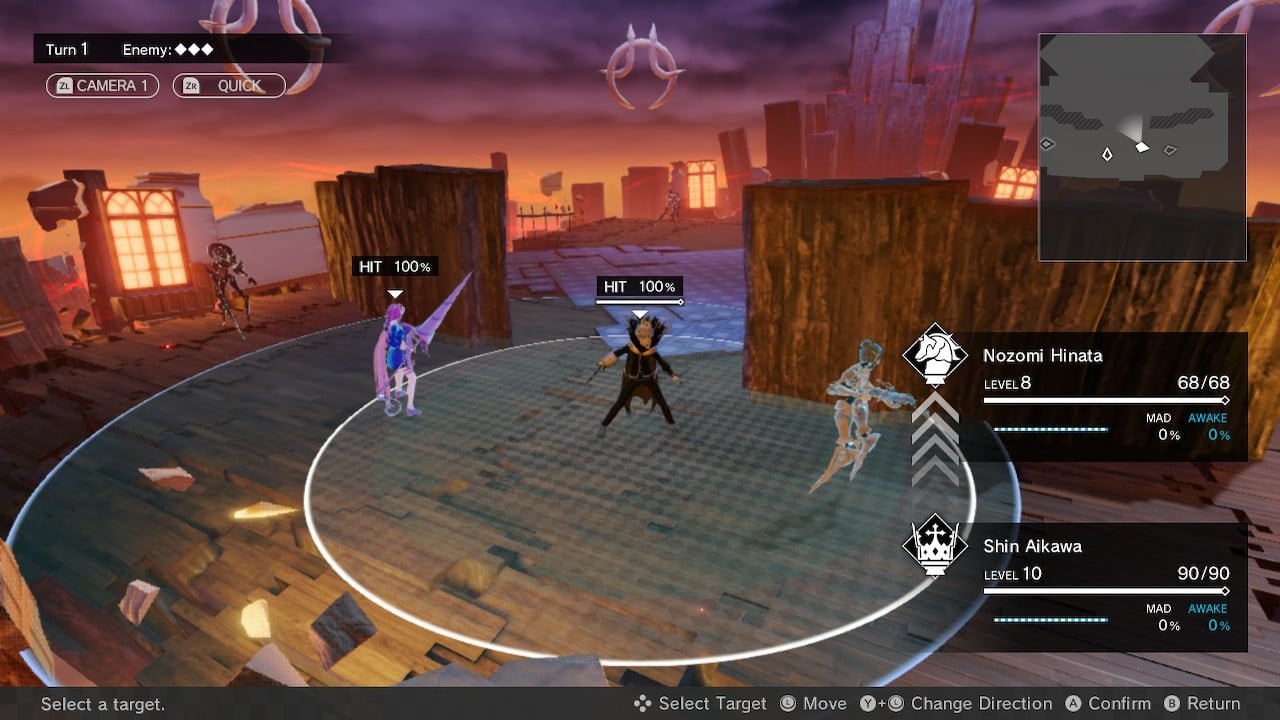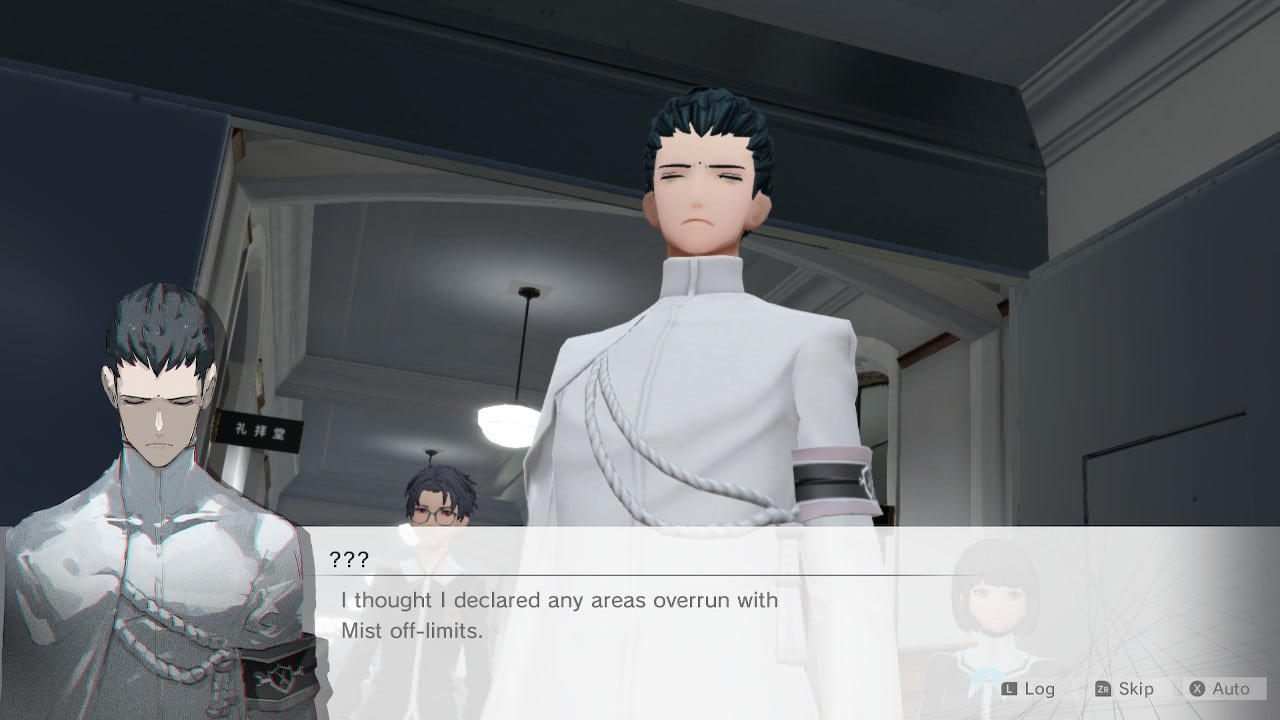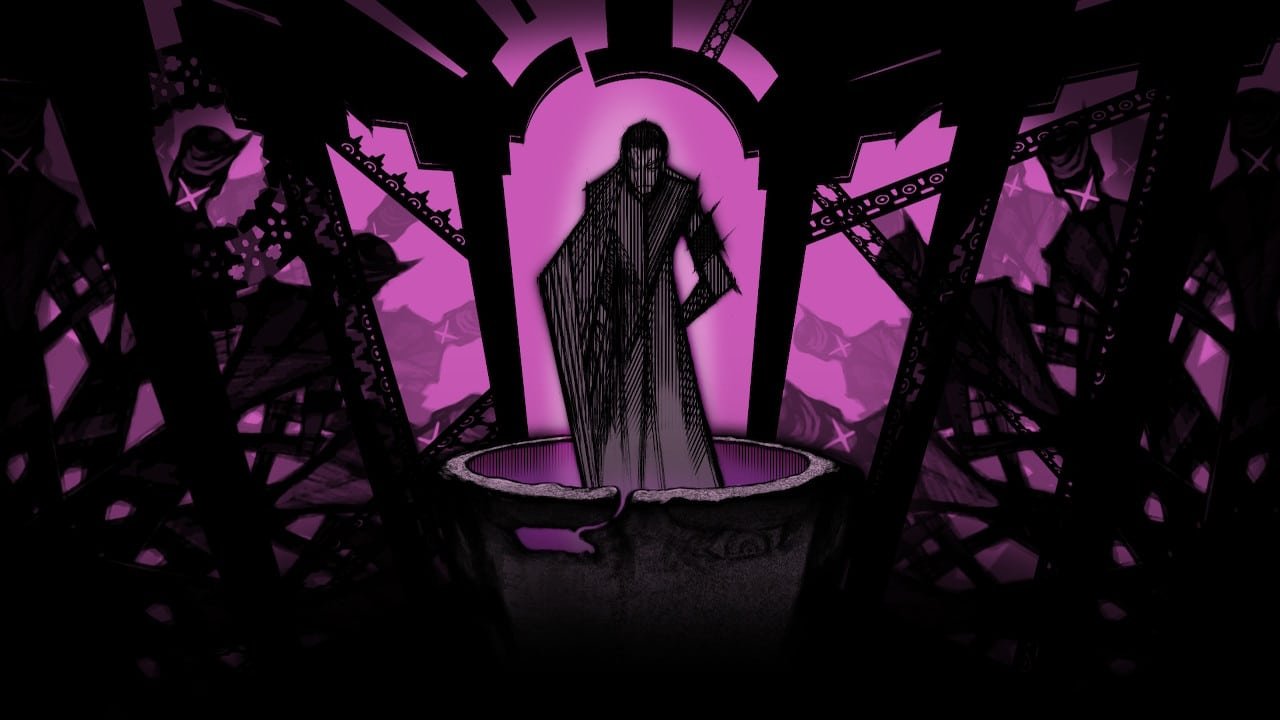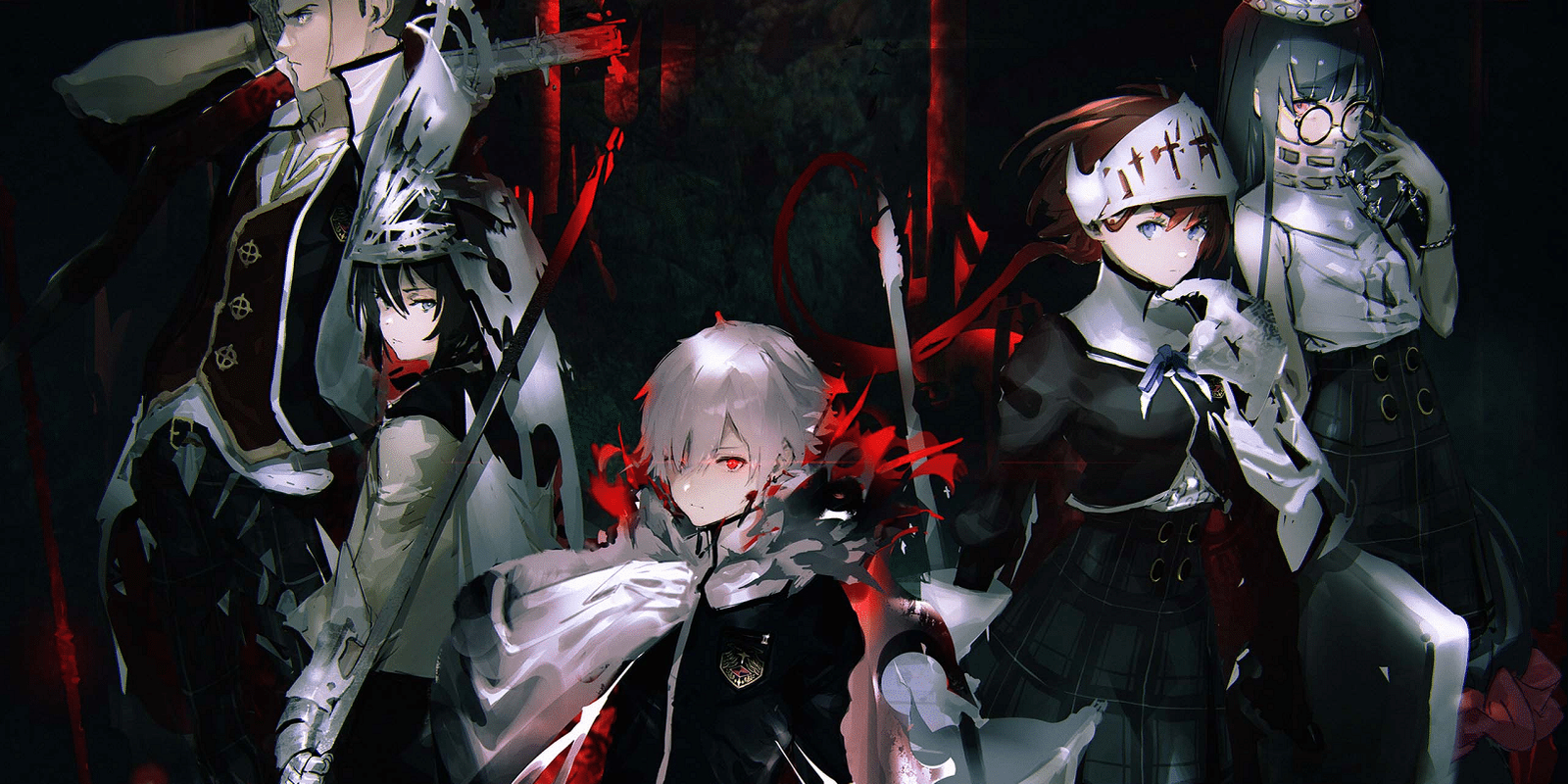MONARK looks to stand out from the crowd of turn-based Role-Playing Games by doubling down on its psychological story themes.
Quick View
Title: MONARK
Release Date: February 22, 2022
Price: $59.99
Suggested Audience Age: Teen
Time to Play: Up to 80 hours to fully complete (reported)
Availability: Nintendo Switch, Playstation 4 & 5, and PC via Steam and Humble (with demos available)
Recommended for fans of: Shin Megami Tensei titles, low-and-slow adventures, and a little bit of strategy as a snack
Geek to Geek Media was provided with a review copy of this title by NIS America.
We're a big fan of RPGs around here, be they eastern or western. And, luckily, there's been a bumper crop of those on most platforms in recent years; depending on your viewpoint, we're either feasting on or drowning in them.
So, when something stands out and catches our eye, it's hard for us not to get excited about it.
Right away, MONARK hits a ton of notes that make my ears perk up. Just look at the back-of-the-box pitch:
Before you is a barrier separating the campus from the rest of the outside world.
Within the academy grounds are the madness-inducing Mist, cryptic phone calls that connect to the Otherworld, and seven Pactbearers–each with their own Daemonic Authority ruled by their Egos.
To defy the irrationality surrounding you, you acquire the Authority of Vanity, a Daemonic power that subsists off of your Ego and madness.
It's a bucketload of Proper Nouns just related enough to actual concepts to stay vague. A high-school setting crawling with literal sin and evil. An inherent hook that ties the characters and story directly into the gameplay.
And if any of this seems familiar to you, that's not by chance – many of the development staff at Lancarse are veterans of the Shin Megami Tensei mega-series of metaphysical RPGs.
But that isn't to say that MONARK is riding on its coattails. After all, Persona hardly gets to corner the market on “high schooler fights demons with demons”.
The Imperfect Self
For a slow-to-start plot that might take 40 hours, MONARK goes hard and fast into its concept. After drilling you with a personality quiz, it more-or-less spits you on the floor in what feels like the third episode of an ongoing series. The school comes pre-invaded, student cliques already formed into tribes, and the whole situation fully shot.
So, a perfect situation to put the player on their back foot.
That little test at the beginning of the game is your first taste of its mechanics, and it mostly serves to judge the player on their worst qualities:

This comes up over and over, from quaint magazine-style personality quests to little assessments that other characters will give you throughout the campaign. Direct choices aren't the only way to shift your sinful standing; defeating enemies will give you a bit of a boost, too, meaning you're never truly locked out of a sidequest that requires a certain character alignment.
And, ultimately, that self-indulgent mindset resulted in fun and interesting choices for me. For example, there's a haughty mascot character who delivers a lot of the game's early lore, who I personally found a bit annoying. Luckily, the game will openly let you bully him should you choose, and I definitely did choose.
Petty? Absolutely.
Do I regret it? Not for a second.
In most RPGs, I feel like it's all-too-easy to default to the most diplomatic option, or whatever option is worth more “karma points”. But in MONARK, it's presented as much a space to experiment as the battles.
Towering Ego
While actual combat encounters are as sparse as you make them – throughout the first chapter, I was never forced into a “random battle” – those that you do see make up for it in complexity. The game has more of a strategy RPG core – move your characters into position, then attack, preferably from behind or out of reach. Simple enough. But then you get additional bonuses from “ganging up” on one enemy. Or you can take a hit to your “MAD” gauge – more on that in a moment – to let a strong character take an extra turn.
And the main character's signature quirk – synchronization – is the biggest wrinkle. For a few turns, he can borrow another character's stat buffs and move list, again doubling the use you can get out of a key character. Or, if you're tricky, you can borrow the same benefits from a potent enemy unit. If you're willing to fly close to the sun, things can snowball pretty quickly.
But, like in any good strategy game, the system thrives on trade-offs. Magic-like “Authority” is cast by increasing MAD, which is coded as an insanity gauge. And when it hits 100%, your character enters a three-turn timer before they keel over automatically. The only way to stave this off is by increasing an opposing AWAKE percentage, usually by passing up an opportunity to attack or recuperate.
Coupled with tricky access to healing abilities early on and some wild difficulty spikes, MONARK felt like it was setting me up for a parade of tight scrapes. It options are seemingly: push yourself to the limit, or perish.

And, in case that's not enough, MONARK also flirts with resource constraints, rolling experience and currency into an all-purpose “SPIRIT”. This same pool used to level up one character is shared with the whole party, and you have spare a bit more to top off your healing items. Or you could just do neither and, in theory, bang your head against a wall until you beat the game with Level-1 characters.
That said, it's not hard to find a few extra monsters to make literal house calls to. For story reasons, your cell phone will only dial out to the realm of Daemons; mechanically, this means you could punch in any nine digits to pick a fight with at any time. In my experience, it almost felt necessary to fish around for one offering healthy rewards – but that wouldn't stomp me flat in one turn – and throw myself at it until I felt prepared for the next story segment. And when I did feel ready, it was easy to make a bee-line to the next bit of story with little to slow me down.
MONARK‘s combat can be a fun challenge, to be sure. Still, I often felt like I had to actively wrestle it down to a manageable level.
Off-Kilter
And, for all it's doing that's novel, MONARK sometimes feels like it's fallen on old standbys. Its authoritarian student council is are a dime a dozen, for example; while the framing of Sin and Ego casts them in a darker light, it doesn't always feel like it adds enough depth to grab me. Granted, I'm in the early hours, and there's a dozen threads still dangling from this plot. But at the end of the first chapter, none of the cast strike me as particularly memorable yet.
It doesn't help that the game's presentation is a little mixed. On one hand, the soundtrack has a healthy selection of great battle themes, and its almost sanitary black-and-white UI feeds a cold atmosphere. On the other, there's a stark difference between its stylistic character portraits and decidedly un-stylish character models. These go so far as to look uncanny in pre-rendered cutscenes, and not in a deliberately-eerie way that would serve the game's bleaker topics.
In fact, one of the most memorable characters for me never touched the story. To fill out your numbers early on, the game provides a blank-slate “Vessel” unit. They start very basic, but as you fill out in-game achievements and defeat certain enemies, you can customize them more and more. Of course, I'm just a sucker for character creators. Still, it felt nice to have a purely-mechanical unit to completely call my own amongst the usual high schoolers.

There's also a mechanic where, for every few seconds spent in a dungeon, your MAD meter will passively tick up. Spend too long before ducking out or fighting the boss, and you'll have little headroom for anything more than simple slashes. The sense of pressure definitely feeds into the story's grim outlook, sure. But as somebody who loves lore and ticking imaginary boxes, I felt more annoyed, like the game itself was nagging me for loitering in its halls.
Reading ahead, the story later splits into four “routes” leads toward different ending. Normally, this would mean re-playing the opening sections multiple times and losing some apparent progress. But, from the sound of it, beating one route takes you. As someone who's spent a lot of time fast-forwarding through second runs of story-heavy games, this is welcome choice that genuinely feels made out of respect for the player's time.
Impressions Wrap-up
MONARK is a bit of a mixed bag for me so far. On one hand, its script can feel a little tropey; on the other, it invites me to punch it up by playing a snide jerk. While its battle system has me fighting uphill, it also kindly steps aside when I want to breeze past it. And whenever I feel like I've seen enough, it shows me something just novel enough to re-capture my attention.
I haven't put it out of the question that MONARK could really pay off down the road. Between playful tactical encounters, a more pensive outlook, and a dash of unique mechanics, it certainly has a unique blend to it. It's imperfect, sure, but so are we. And I think there's something to be said for a game where I'm enjoying playing the snarky, just-a-little-bit-edgy one.
So I'm going to keep playing this one, I think. After all, there's nothing wrong with indulging a bit from time to time.


